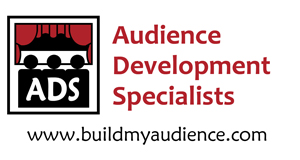
I normally do not write about board management, but there is some cross over when it comes to what a board does for you. One of their jobs is (or should be) audience development, especially when it comes to their job of being an ambassador to spread the word about your organization and events.
The first question to ask before going further – how does your board function? Is it more an advisory board, or is it a working board? If you answered working board, then it is a good idea to make sure your board is empowered to get the work done.
What does this mean exactly? Here are a few best practices for empowering your working board:
- Make sure they know what their roles are, and put these defined roles in writing. I am still seeing some boards a little lost in regards to what their actual jobs are supposed to be.
- Give them training on what you would like them to do. If you would like them to fundraise, or at least build relationships so it is easy for you to take over to ask for the donation or sponsorship, then you will need to train them on relationship building and/or asking for donations and sponsorships.
- Does the president or treasurer serve as a back up for accounts payable? If so, make sure they have the ability to sign and cut checks, and of course, the knowledge of account information needed to carry the tasks out.
- Are they helping with invitations for a special event? Having the information about where the lists are and your input of who you would like to be invited would be good to set up in advance.
I hope you are seeing that idea that if you would like the board to help in a certain capacity, make sure they know it will be their job and empower them with training and knowledge to get the job done. Otherwise, the board will be lost and not able to function in those assigned roles.
Also, setting all this up in advance of your major season or events is key. Last minute attempts to ask them to be responsible for something might translate into missed training and information they will need. If you need to leave it to them to do, and foresee times you will have to do this, then it is best to set up training and information in advance so no one is left in the dark while you are gone.
Of course, emergencies come up, but as much advance thought to have your board empowered to do their jobs will have the organization continually running and in good shape.
Do you have any advice to give on empowering your board? Any thoughts? Please feel free to share by replying!
Cheers to happy and loyal audiences and boards,
Shoshana
Shoshana Fanizza
Chief Audience Builder, Audience Development Specialists
Speaking of best practices, check out my latest book!
Filled with affirmations, best practices, coloring breaks, and illustrative goodness!
Black and White and Color Versions available.






Good advice, Shoshana. I find that engaging the board in figuring out what will make it possible for them to take on the roles makes it much more likely that they will actually fulfill them. Instead of telling them, build a picture with them of what it looks like when they are fulfilling the role and what they need in order to do that. They’ll often be the ones who say they need training — then they actually come and take part in it.
Good point, Susan, and I like the fact that it would be their ideas for what is useful for them to do the job. Not only will they be empowered, but they will take ownership. Love it! Thanks for stopping by, and have a great weekend!